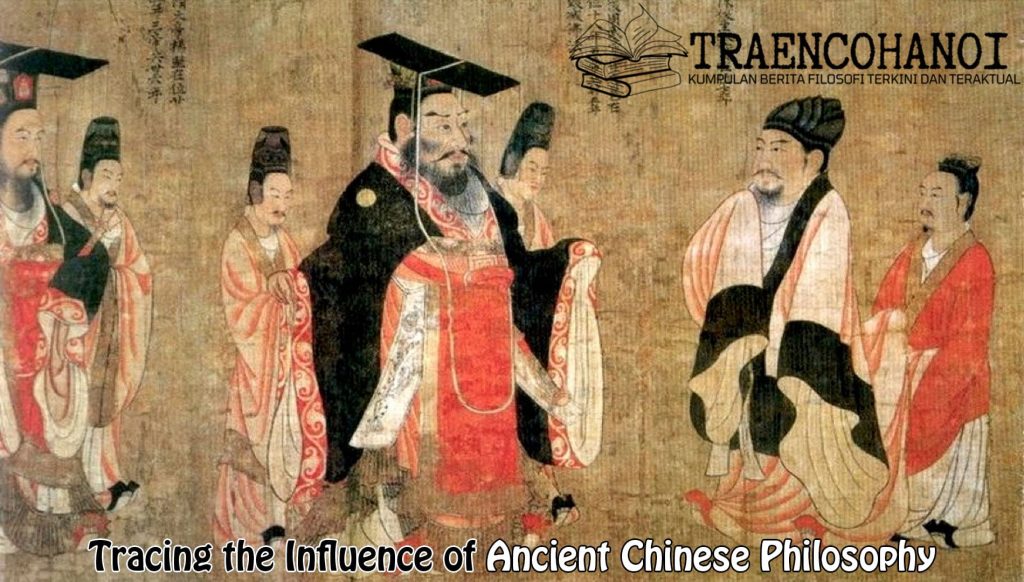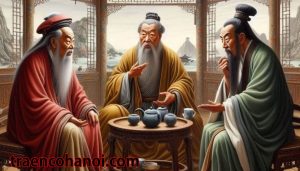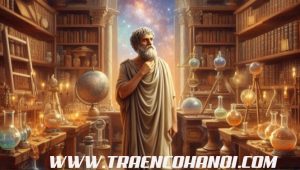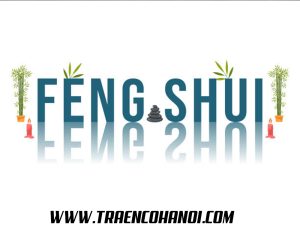
Introduction from Chinese philosophy
The philosophical landscape of ancient China presents a rich tapestry, woven with the threads of thought that have significantly influenced not only Eastern thinking but also the global intellectual milieu. This article delves into the core philosophies that emerged from ancient China, primarily focusing on Confucianism, Daoism (Taoism), and Legalism. Each of these philosophies offers unique perspectives on ethics, governance, and the nature of existence, reflecting the diverse and complex nature of Chinese philosophy thought.
Confucianism: The Ethical Framework
Confucianism, named after its founder, Confucius (Kong Fuzi), is not merely a philosophy but a way of life. Flourishing during the tumultuous times of the Zhou Dynasty, it sought to restore social harmony and order. Central to Confucian thought is the concept of ‘Ren’ or benevolence, advocating moral integrity and empathetic understanding in human relationships.
Key Principles:
- Ren (Benevolence): Emphasizes compassion and empathy towards others.
- Li (Ritual Propriety): Stresses the importance of etiquette and rituals in daily life.
- Xiao (Filial Piety): Underscores the respect and duty towards one’s parents and ancestors.
Confucianism profoundly shaped Chinese society, emphasizing hierarchical relationships and collective responsibility. It laid the groundwork for civil service and the meritocratic system, significantly impacting governance and education.
Daoism (Taoism): The Path of Natural Harmony
Daoism, attributed to the mystical figure Laozi, offers a striking contrast to the structured ethics of Confucianism. Central to Daoism is the Dao (Tao), often translated as ‘the Way’, an ineffable force that underlies the universe and all existence.
Core Tenets:
- Wu Wei (Non-Action): Advocates for naturalness, simplicity, and spontaneity, suggesting that one should align with the natural flow of life.
- Yin and Yang: Symbolizes the interconnectedness and constant flux of opposite forces in the universe.
- Ziran (Naturalness): Encourages a life in harmony with nature, free from artificial constructs.
Daoism has deeply influenced Chinese art, medicine, and science, promoting a holistic view of health and the cosmos. It also complements Chinese martial arts and meditation practices, emphasizing inner peace and harmony with the external world.
Legalism: The Doctrine of Law and Order
Legalism, often seen as a counterpoint to both Confucianism and Daoism, emerged as a pragmatic philosophy during the Warring States period. Pioneered by thinkers like Han Feizi, Legalism posited that human nature is inherently selfish and that strong, central authority and strict laws are necessary to maintain social order.
Fundamental Beliefs:
- Rule by Law: Asserts that strict laws, enforced through rewards and punishments, are crucial for maintaining order.
- Centralized Power: Advocates for a strong, autocratic ruler to enforce these laws.
- Realpolitik: Focuses on practical and pragmatic statecraft, often disregarding moral considerations.
Legalism played a pivotal role in the unification of China under the Qin Dynasty. Its principles, albeit criticized for their harshness, were instrumental in consolidating the Chinese state and establishing an effective bureaucratic system.
The philosophical heritage of ancient China, with its rich diversity, offers profound insights into human nature, ethics, and governance. Confucianism’s moral rectitude, Daoism’s embrace of natural harmony, and Legalism’s pragmatic realism collectively paint a picture of a civilization deeply engaged in exploring the human condition. Understanding these philosophies provides not just a window into ancient China, but also timeless wisdom that continues to resonate in the modern world.
The Influence and Legacy of Ancient Chinese Philosophy in Contemporary Times
As we journey beyond the ancient landscapes, the enduring legacy of China’s philosophical traditions becomes evident in modern contexts. This section explores how the principles of Confucianism, Daoism, and Legalism have transcended time, influencing contemporary societies, cultures, and even global politics.
Confucianism in Modern Education and Society
Confucian ideals, with their emphasis on education and moral development, continue to influence educational systems in East Asia. Respect for teachers, the importance of rigorous study, and the pursuit of wisdom reflect Confucian values. Modern East Asian societies, particularly China, South Korea, and Japan, still echo Confucian ethics in emphasizing family values, respect for elders, and social harmony.
Daoism and the Global Environmental Movement
Daoism, with its principles of living in harmony with nature, has found new relevance in the global environmental movement. The Daoist worldview encourages sustainable living and respect for the natural world, principles that resonate deeply in an age grappling with climate change and ecological imbalance. Practices derived from Daoism, such as Tai Chi and Qigong, have also gained international popularity, promoting physical and mental well-being.
Legalism in Contemporary Governance
While Legalism is often viewed critically for its authoritarian leanings, its impact on contemporary governance can’t be ignored. The idea of a strong, centralized state and the rule of law finds echoes in many modern governments. In China, the Legalist tradition can be seen in the emphasis on state control and the implementation of stringent laws to maintain social order and economic control.
Cultural and Philosophical Synthesis
In the globalized world, a synthesis of these philosophical traditions is observable. Confucian ethics influence global business practices, particularly in the realms of leadership and organizational hierarchy. Daoist concepts have merged with Western environmental and health practices, while the pragmatic aspects of Legalism inform policies and governance strategies worldwide.
Challenges and Adaptations
The challenge for modern societies is to adapt these ancient philosophies to contemporary realities. For instance, how can Confucian values coexist with the individualistic ethos of Western societies? How can Daoist principles be integrated into the technology-driven, fast-paced modern world? These questions invite ongoing dialogue and reinterpretation.
Conclusion of Chinese philosophy
The philosophical doctrines of ancient China are not relics of the past but living ideas that continue to evolve and influence our world. From shaping personal ethics to informing state policies, these philosophies offer a rich, complex, and often paradoxical view of the human condition. Their relevance in the modern era underscores the universality and timeless nature of these ancient wisdoms, reminding us that the quest for understanding, balance, and ethical governance is as pertinent today as it was millennia ago.







